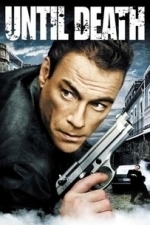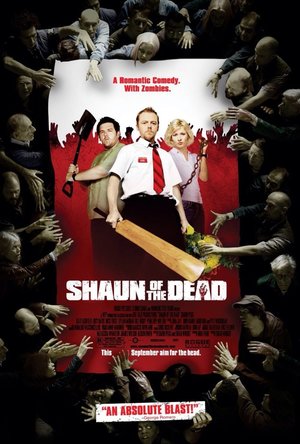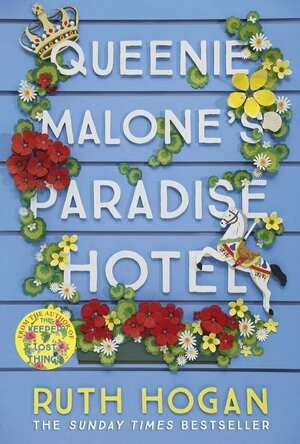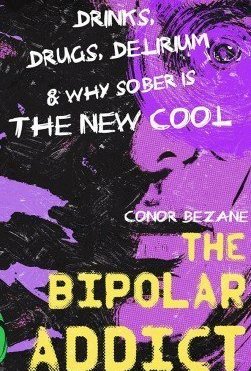Search
Search results
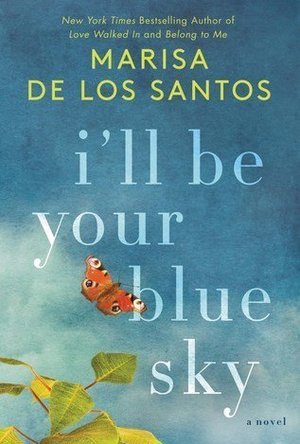
I'll Be Your Blue Sky
Book
The New York Times bestselling author revisits the characters from her beloved novels Love Walked In...
fiction contemporary fiction series
Anna Marie Green (7 KP) rated the Xbox One version of Monster Hunter World in Video Games
Jul 3, 2018 (Updated Jul 3, 2018)
Fantastic Gameplay Possibilities (4 more)
Intelligent Monster AI
Climbing Difficulty
Good Community Management
It's Damn Good Fun (If you have $30, buy it.)
Feels Incomplete (2 more)
Experienced Players Lack Challenge
Mediocre Story
Monster Hunter, One Year Later
Monster Hunter: World was Capcom's fiest big success in the Western market. After years of cult status on the DS, they finally broke through to the world of consoles and had so much success that they dubbed MH:W their benchmark for future games.
But should they?
MH:W is, at its core, is a dungeon crawler designed to feel open-world within its own constraints. With beautiful environments such as the Coral Highlands and the toxic areas festering beneath the Rotten Vale, MHW looks and feels much more massive than the trodden paths you follow. Your first hunts feel thrilling as you take different paths to chase your limping prey, and a cycle of different weather, monsters, and endemic life keep you invested in immersion.
But after hunting a tempered Nergigante for the 20th time, things do begin to fall out of place. You experience the malaise of a Saitama-like hero. Have you become too strong?
Challenging fights become the norm. The occasional arch-tempered monster appears, but scaled damage isn't always the same thing as new difficulty.
In the handheld games, there were dozens of monsters with distinct abilities and variations. MH: Generations had 73 large monsters to hunt. You could even play as a palico.
But that variety just isn't in MH:W.
Granted, the game is an experiment and has provided some good content for no extra cost to the players, which is a feat of its own in comparison to all the other big game developers (EA, Microsoft, Square Enix, Bethesda). They also do an excellent job managing weekly challenges and encouraging community between players. Kulve Taroth hunts were a blast and the free meal in the Hub was an excellent bribe.
MH:W still needs more monsters and at least one new environment. Since its release in January 2018, only three monsters have been added to the game: Deviljho, Kulve Taroth, and Lunastra. Behemoth from Final Fantasy is also making an appearance this July. That's a monster every two months. Don't get me wrong here— that's a fair schedule for content release. Overwatch clocks in at about three months for every hero, so two months is a respectable jog for the quality of the quality of the game. Still, even Overwatch -with it's full player-controlled roster- can become a bit of a slog without those regular updates.
The easiest fix? Capcom needs to finally add in G-Ranks with weapon rarities 9 and 10, and the terrifying monsters to match. The other MH games have generally had these ranks, and the MH:W G updates have been teasing us in rumors since the release, yet we haven't seen any evidence of their existence. A massive content update containing new unique weapons trees, rarity 8 varieties of dead-end trees, armor transmogs, new endemic life and monsters, better armor designs, and more material choices... Capcom has incredible potential on their table that could rekindle gamers' interest in helping the Fifth solve the new mysteries of the New World.
Or, god forbid, suffer the gamers by making them by Monster Hunter: World 2 just to feel like they actually completed the first game.
But should they?
MH:W is, at its core, is a dungeon crawler designed to feel open-world within its own constraints. With beautiful environments such as the Coral Highlands and the toxic areas festering beneath the Rotten Vale, MHW looks and feels much more massive than the trodden paths you follow. Your first hunts feel thrilling as you take different paths to chase your limping prey, and a cycle of different weather, monsters, and endemic life keep you invested in immersion.
But after hunting a tempered Nergigante for the 20th time, things do begin to fall out of place. You experience the malaise of a Saitama-like hero. Have you become too strong?
Challenging fights become the norm. The occasional arch-tempered monster appears, but scaled damage isn't always the same thing as new difficulty.
In the handheld games, there were dozens of monsters with distinct abilities and variations. MH: Generations had 73 large monsters to hunt. You could even play as a palico.
But that variety just isn't in MH:W.
Granted, the game is an experiment and has provided some good content for no extra cost to the players, which is a feat of its own in comparison to all the other big game developers (EA, Microsoft, Square Enix, Bethesda). They also do an excellent job managing weekly challenges and encouraging community between players. Kulve Taroth hunts were a blast and the free meal in the Hub was an excellent bribe.
MH:W still needs more monsters and at least one new environment. Since its release in January 2018, only three monsters have been added to the game: Deviljho, Kulve Taroth, and Lunastra. Behemoth from Final Fantasy is also making an appearance this July. That's a monster every two months. Don't get me wrong here— that's a fair schedule for content release. Overwatch clocks in at about three months for every hero, so two months is a respectable jog for the quality of the quality of the game. Still, even Overwatch -with it's full player-controlled roster- can become a bit of a slog without those regular updates.
The easiest fix? Capcom needs to finally add in G-Ranks with weapon rarities 9 and 10, and the terrifying monsters to match. The other MH games have generally had these ranks, and the MH:W G updates have been teasing us in rumors since the release, yet we haven't seen any evidence of their existence. A massive content update containing new unique weapons trees, rarity 8 varieties of dead-end trees, armor transmogs, new endemic life and monsters, better armor designs, and more material choices... Capcom has incredible potential on their table that could rekindle gamers' interest in helping the Fifth solve the new mysteries of the New World.
Or, god forbid, suffer the gamers by making them by Monster Hunter: World 2 just to feel like they actually completed the first game.
Darren (1599 KP) rated Until Death (2007) in Movies
Jul 25, 2019
Story: Until Death starts as we see how Anthony Stowe (Van Damme) operates under his own addictions of heroin, sex alcohol which has put his career on the edge, his marriage in the drain and his enemy Gabriel Callaghan (Rea) is getting away with the crimes he wants.
When Gabriel catches up with Anthony, he puts a bullet in his skull leaving him for dead, only to leave him in a coma in which he shouldn’t recover from. 6 months later he awakens from his coma and is left to the care of his estranged wife Valerie (Giles), as he recovers it turns out he has changed becoming a better person and even more determined to track down Gabriel.
Thoughts on Until Death
Characters – Anthony Stowes is a dirty cop, hooked on heroin with enemies in the force and on the streets, the methods have made his hard to work with and his long running pursuit of Callaghan puts him in the firing line. After he gets shot and left for dead, he must recover, a process which see him changing to become a better man. Valerie is the wife that is about to divorce Anthony after years of problems between the two, after his injury she takes him in even though she has moved on with her life. Gabriel Callaghan is the ruthless mobster trying to get ahead in the city, he disposes of anyone that gets in his way and won’t let Stowe stop his plan.
Performances – We watch Van Damme movies to watch him kick ass, not because of his acting standards, he is good through the film as does give us a chance to work on his serious reactions, he doesn’t get to show the fighting enough though. Selina Giles does struggle with her role though, you never believe her acting in this role. Stephen Rea does seem to enjoy this villainous role where he can become darker as the film unfolds.
Story – The story follows a dirty cop that goes head to head with a crime boss only for his crashing life to be turned around by a near death experience. The pacing of the story is slow for my liking, we spend too much time with the bad version of Stowe and not enough on the reborn versions road to redemption, which is by the book. Granted we don’t need the deepest story here because we know what we are getting going into the film.
Action/Crime – The action is held back for the final act of the movie, which is fine, but when you have Van Damme in the leading role, you would expect more. The crime side of the film does play into the bigger picture of what is going on which give the characters the biggest part of the development they get.
Settings – The film uses New Orleans as the setting which is always a city used for dirty cop locations, it works well without being over used for the films backdrop.
Scene of the Movie – Final act is the saving grace of the film.
That Moment That Annoyed Me – The damn camera turns.
Final Thoughts – This is a typical Van Damme action movie, it tries to give us a serious side without being able to capture this and we are saved by a final act action sequence which is entertaining to watch.
Overall: Van Damme 101
When Gabriel catches up with Anthony, he puts a bullet in his skull leaving him for dead, only to leave him in a coma in which he shouldn’t recover from. 6 months later he awakens from his coma and is left to the care of his estranged wife Valerie (Giles), as he recovers it turns out he has changed becoming a better person and even more determined to track down Gabriel.
Thoughts on Until Death
Characters – Anthony Stowes is a dirty cop, hooked on heroin with enemies in the force and on the streets, the methods have made his hard to work with and his long running pursuit of Callaghan puts him in the firing line. After he gets shot and left for dead, he must recover, a process which see him changing to become a better man. Valerie is the wife that is about to divorce Anthony after years of problems between the two, after his injury she takes him in even though she has moved on with her life. Gabriel Callaghan is the ruthless mobster trying to get ahead in the city, he disposes of anyone that gets in his way and won’t let Stowe stop his plan.
Performances – We watch Van Damme movies to watch him kick ass, not because of his acting standards, he is good through the film as does give us a chance to work on his serious reactions, he doesn’t get to show the fighting enough though. Selina Giles does struggle with her role though, you never believe her acting in this role. Stephen Rea does seem to enjoy this villainous role where he can become darker as the film unfolds.
Story – The story follows a dirty cop that goes head to head with a crime boss only for his crashing life to be turned around by a near death experience. The pacing of the story is slow for my liking, we spend too much time with the bad version of Stowe and not enough on the reborn versions road to redemption, which is by the book. Granted we don’t need the deepest story here because we know what we are getting going into the film.
Action/Crime – The action is held back for the final act of the movie, which is fine, but when you have Van Damme in the leading role, you would expect more. The crime side of the film does play into the bigger picture of what is going on which give the characters the biggest part of the development they get.
Settings – The film uses New Orleans as the setting which is always a city used for dirty cop locations, it works well without being over used for the films backdrop.
Scene of the Movie – Final act is the saving grace of the film.
That Moment That Annoyed Me – The damn camera turns.
Final Thoughts – This is a typical Van Damme action movie, it tries to give us a serious side without being able to capture this and we are saved by a final act action sequence which is entertaining to watch.
Overall: Van Damme 101
Sarah (7800 KP) rated Shaun of the Dead (2004) in Movies
Dec 26, 2020 (Updated Dec 26, 2020)
Zombie hilarity
Film #8 on the 100 Movies Bucket List: Shaun of the Dead
Shaun of the Dead (2004) is the first film in the Cornetto trilogy, a series of films directed by Edgar Wright and starring Simon Pegg and Nick Frost. I have to admit I’m a little biased when it comes to Shaun and 2007’s Hot Fuzz (shameful that this isn’t also on the bucket list), the first two films in the trilogy, as they’re two of my comedy favourites and films I can quote far too much from. And as zombie horror comedies go, you can’t get much better than Shaun of the Dead.
The film follows Shaun (Simon Pegg), a hopeless boyfriend who shares a house with his slacker friend Ed (Nick Frost) and stickler Pete (Peter Serafinowicz), while he tried to save his Rocky relationship with girlfriend Liz (Kate Ashfield) whilst trying to battle his way through a zombie apocalypse. The best thing about Shaun of the Dead is how it follows Shaun trudging almost zombie like through his own life, while in the background a real zombie apocalypse is breaking out. It’s so incredibly fun watching all of the zombie related acts in the background that the main characters are completely oblivious about, and not only is it funny, it’s also a rather clever commentary on the state of our culture and society – I’m sure we could all imagine this oblivious self absorbed attitude being very much present in a lot of people if a zombie apocalypse ever really happened.
Shaun also succeeds due to the incredibly clever and witty script and the gags that don’t ever seem to let up. From the subtle zombie nods in the beginning to the wisecracking and snide remarks between Shaun, Ed and virtually everyone else in Shaun’s life, this film is hilarious and infectiously quotable. The zombie apocalypse is tackled in such a typically British way, and not only is this funny but it’s incredibly refreshing too when compared to the overly stylish guns ‘n’ ammo style zombie films we’re used to from across the pond. How often do you see character trying to kill zombies with records before settling down with a cup of tea and a cornetto? It’s a work of genius.
The cast too are equally responsible for how good this film is, and do a great job with the script and pace. Not only do you have the charismatic pairing of Pegg and Frost who’s chemistry is undeniable, there’s also an excellent supporting cast with some rather big names in the UK industry: Bill Nighy, Jessica Hynes, Dylan Moran, Lucy Davis and Penelope Wilton. And some blink and you’ll miss it cameos from comedy greats Matt Lucas, Reece Shearsmith and Tamsin Greig. These names paired with Edgar Wright’s well paced directing style makes for an engaging film.
Shaun of the Dead is basically a big screen zombie version of Spaced, and this definitely isn’t a bad thing. The only negative about this, especially watching it 16 years later, is that it seems so obviously low budget which I think has only been made more obvious with age. Even in HD it does look a tad aged which is a shame, but the amount of blood and gore is still impressive for a 15 rated film.
Despite it’s age, Shaun of the Dead is one of the best zombie films out there and the fact that it’s hilarious too just makes it even better. And after watching this, you’ll never think of Queen’s Don’t Stop Me Now in the same way again.
Shaun of the Dead (2004) is the first film in the Cornetto trilogy, a series of films directed by Edgar Wright and starring Simon Pegg and Nick Frost. I have to admit I’m a little biased when it comes to Shaun and 2007’s Hot Fuzz (shameful that this isn’t also on the bucket list), the first two films in the trilogy, as they’re two of my comedy favourites and films I can quote far too much from. And as zombie horror comedies go, you can’t get much better than Shaun of the Dead.
The film follows Shaun (Simon Pegg), a hopeless boyfriend who shares a house with his slacker friend Ed (Nick Frost) and stickler Pete (Peter Serafinowicz), while he tried to save his Rocky relationship with girlfriend Liz (Kate Ashfield) whilst trying to battle his way through a zombie apocalypse. The best thing about Shaun of the Dead is how it follows Shaun trudging almost zombie like through his own life, while in the background a real zombie apocalypse is breaking out. It’s so incredibly fun watching all of the zombie related acts in the background that the main characters are completely oblivious about, and not only is it funny, it’s also a rather clever commentary on the state of our culture and society – I’m sure we could all imagine this oblivious self absorbed attitude being very much present in a lot of people if a zombie apocalypse ever really happened.
Shaun also succeeds due to the incredibly clever and witty script and the gags that don’t ever seem to let up. From the subtle zombie nods in the beginning to the wisecracking and snide remarks between Shaun, Ed and virtually everyone else in Shaun’s life, this film is hilarious and infectiously quotable. The zombie apocalypse is tackled in such a typically British way, and not only is this funny but it’s incredibly refreshing too when compared to the overly stylish guns ‘n’ ammo style zombie films we’re used to from across the pond. How often do you see character trying to kill zombies with records before settling down with a cup of tea and a cornetto? It’s a work of genius.
The cast too are equally responsible for how good this film is, and do a great job with the script and pace. Not only do you have the charismatic pairing of Pegg and Frost who’s chemistry is undeniable, there’s also an excellent supporting cast with some rather big names in the UK industry: Bill Nighy, Jessica Hynes, Dylan Moran, Lucy Davis and Penelope Wilton. And some blink and you’ll miss it cameos from comedy greats Matt Lucas, Reece Shearsmith and Tamsin Greig. These names paired with Edgar Wright’s well paced directing style makes for an engaging film.
Shaun of the Dead is basically a big screen zombie version of Spaced, and this definitely isn’t a bad thing. The only negative about this, especially watching it 16 years later, is that it seems so obviously low budget which I think has only been made more obvious with age. Even in HD it does look a tad aged which is a shame, but the amount of blood and gore is still impressive for a 15 rated film.
Despite it’s age, Shaun of the Dead is one of the best zombie films out there and the fact that it’s hilarious too just makes it even better. And after watching this, you’ll never think of Queen’s Don’t Stop Me Now in the same way again.

Babbel – Learn 14 languages
Education and Travel
App
Learn Spanish, French, Italian, German, and many more languages with Babbel, the shortest path to...
BookInspector (124 KP) rated Queenie Malone's Paradise Hotel in Books
Sep 24, 2020
The protagonist in this book was Tilda/Tilly, and she is sharing her life story. The story keeps switching between present and past, Tilly is sharing her life story from when she was little, and Tilda is sharing the events happening now. I really loved this kind of storytelling, the same person, but perspectives completely different and unique. Tilly is absolutely adorable and very grown up for her age. I loved everything about her, she is a funny, playful, smart and very extraordinary little girl. Tilda, on the other hand, was a very strange persona, who sounds very messed up and weird. My least favourite character would be the mother, I honestly didn’t understand the reasoning for what she was doing, it just didn’t make sense to me.
The narrative is carrying two different stories, but they are very entwined with each other. Tilda’s relationship with her mother is very complex, she can’t understand why her mother done some of the things in the past, so when she finds out, it leaves her gobsmacked. It is a very painful and emotional story to read, it shows how misunderstood people and their actions can affect you for the rest of your life. I really loved this constant suspense, I was dying to find out more about Tilly’s mother, and the author was very creatively teasing me all the time. This novel carries a great variety of characters, who are very intriguing, and Tilly’s gift makes the whole book very mysterious.
The writing style of this novel felt like a hug, it feels very comforting, snugly and absorbing. The language is easy to read, but it got me thinking because some things were a little confusing. The one thing that didn’t really leave me happy was chapter length and paragraph size. I know it is silly, but I normally read on my commute, so I prefer shorter chapters and paragraphs, it is easier to follow later on. The ending was very well thought through and rounded the story well, but I think it was very unfair and cruel.
To conclude, it is a very well written novel, filled with difficult relationships, very unique characters and layered plot. I really enjoyed different storylines as well as unexpected turns and twists. I am definitely in love with Ruth Hogan’s writing, and will definitely be going to read her previous novels. So, please, do give this book a go, and I hope you will enjoy it as much as I did.
The narrative is carrying two different stories, but they are very entwined with each other. Tilda’s relationship with her mother is very complex, she can’t understand why her mother done some of the things in the past, so when she finds out, it leaves her gobsmacked. It is a very painful and emotional story to read, it shows how misunderstood people and their actions can affect you for the rest of your life. I really loved this constant suspense, I was dying to find out more about Tilly’s mother, and the author was very creatively teasing me all the time. This novel carries a great variety of characters, who are very intriguing, and Tilly’s gift makes the whole book very mysterious.
The writing style of this novel felt like a hug, it feels very comforting, snugly and absorbing. The language is easy to read, but it got me thinking because some things were a little confusing. The one thing that didn’t really leave me happy was chapter length and paragraph size. I know it is silly, but I normally read on my commute, so I prefer shorter chapters and paragraphs, it is easier to follow later on. The ending was very well thought through and rounded the story well, but I think it was very unfair and cruel.
To conclude, it is a very well written novel, filled with difficult relationships, very unique characters and layered plot. I really enjoyed different storylines as well as unexpected turns and twists. I am definitely in love with Ruth Hogan’s writing, and will definitely be going to read her previous novels. So, please, do give this book a go, and I hope you will enjoy it as much as I did.
Becs (244 KP) rated The Bipolar Addict in Books
Jun 4, 2019
Very informative!
Rating: ☆☆☆☆.5
Review:
I received a copy to read and review from Smith Publicity for my honest opinion.
TRIGGER WARNINGS: Drug abuse, alcohol abuse, suicide attempts, bullying, sexual abuse.
The Bipolar Addict is broken up into three parts: Part 1 - Conor's Story, Part 2 - Interviews of others who battle with Manic Depression and Bipolar disorder, and Part 3 - Talking of Recovery, getting help, and that sober is the new cool.
Part 1 follows the hardships Conor endured growing up. Bullying which eventually lead to alcohol abuse and then later drug abuse as he grew older. During this time, he also attempted suicide a few times. Conor was then diagnosed with Bipolar disorder, manic depression, and anxiety. Mix all that with alcohol and drug abuse and his body was struggling.
As I read, I was enthralled in the world of what Bipolar disorder really is. I was also blown away with the writing style. The Bipolar Addict is a debut novel by Conor Bezane and he definitely has a way of grabbing your attention and holding it instantly. A first time author, Conor has taken his life and spun it into a tale of struggles, sacrifice, and recovery that will tear the readers heart out, rip it into pieces, and then piece it back together, little by little.
Part 2 was just as interesting as part 1. You learn about a few others who used and through some rough patches like Conor. Part 3 was more informative compared to parts 1 and 2, talking about sober being the new cool and that it's healthy. The book ends with links and information on different helpful groups in the chance that you need to seek help for yourself.
"We are punks. We are poets. Musicians and artists. Professionals and intellectuals. We are drunk. High. Manic. Depressed. We almost died. And now we are stable and sober."
Reasons why I rated it 4.5 stars:
1. The plot:
There really wasn't much of a plot as this was a memoir/ self-help book. But the way Conor wrote, captivated my attention through and through.
2. My enjoyment:
I surprisingly was really interested in the entirety of this book. I couldn't put it down as Conor captivated me, not only in his writing but also the way he was able to take his life and spin it into a tale that read like he was a friend having a conversation.
3. Character and story development:
Again, this was a memoir/ self-help book, so there wasn't much development as it wasn't needed.
4. Grammar and spelling:
I did notice a few grammatical and spelling errors but for this being a debut, I really didn't mind.
5. The overall story:
The way that Conor wrote, you could feel the pain, loss, and loneliness. The lows of depression and the highs of mania. It was all otherworldly and from someone who has balanced depression and anxiety the majority of my life, I felt the painful and roller coaster of a life that Conor lived. This was definitely worth the read and was highly informative.
"Keep coming back."
Review:
I received a copy to read and review from Smith Publicity for my honest opinion.
TRIGGER WARNINGS: Drug abuse, alcohol abuse, suicide attempts, bullying, sexual abuse.
The Bipolar Addict is broken up into three parts: Part 1 - Conor's Story, Part 2 - Interviews of others who battle with Manic Depression and Bipolar disorder, and Part 3 - Talking of Recovery, getting help, and that sober is the new cool.
Part 1 follows the hardships Conor endured growing up. Bullying which eventually lead to alcohol abuse and then later drug abuse as he grew older. During this time, he also attempted suicide a few times. Conor was then diagnosed with Bipolar disorder, manic depression, and anxiety. Mix all that with alcohol and drug abuse and his body was struggling.
As I read, I was enthralled in the world of what Bipolar disorder really is. I was also blown away with the writing style. The Bipolar Addict is a debut novel by Conor Bezane and he definitely has a way of grabbing your attention and holding it instantly. A first time author, Conor has taken his life and spun it into a tale of struggles, sacrifice, and recovery that will tear the readers heart out, rip it into pieces, and then piece it back together, little by little.
Part 2 was just as interesting as part 1. You learn about a few others who used and through some rough patches like Conor. Part 3 was more informative compared to parts 1 and 2, talking about sober being the new cool and that it's healthy. The book ends with links and information on different helpful groups in the chance that you need to seek help for yourself.
"We are punks. We are poets. Musicians and artists. Professionals and intellectuals. We are drunk. High. Manic. Depressed. We almost died. And now we are stable and sober."
Reasons why I rated it 4.5 stars:
1. The plot:
There really wasn't much of a plot as this was a memoir/ self-help book. But the way Conor wrote, captivated my attention through and through.
2. My enjoyment:
I surprisingly was really interested in the entirety of this book. I couldn't put it down as Conor captivated me, not only in his writing but also the way he was able to take his life and spin it into a tale that read like he was a friend having a conversation.
3. Character and story development:
Again, this was a memoir/ self-help book, so there wasn't much development as it wasn't needed.
4. Grammar and spelling:
I did notice a few grammatical and spelling errors but for this being a debut, I really didn't mind.
5. The overall story:
The way that Conor wrote, you could feel the pain, loss, and loneliness. The lows of depression and the highs of mania. It was all otherworldly and from someone who has balanced depression and anxiety the majority of my life, I felt the painful and roller coaster of a life that Conor lived. This was definitely worth the read and was highly informative.
"Keep coming back."

Taste My Recipes
Food & Drink and Lifestyle
App
Want to taste some Asian,European,Brazilian and World Wide best delicious food?? Want to get a...
My rating: 3.5
<i>This eBook was provided by the publisher via NetGalley in exchange for an honest review</i>
Before beginning this book readers need to be aware, particularly those of a more fragile nature, that it contains themes of mental illness, sexual abuse and suicidal tendencies; but that does not mean this is not a great book. The strap line on the cover of <i>Black Box</i> by Cassia Leo says “Not just another love story” implying that whilst it does fall under the romantic genre there is something more to the novel.
The book begins, in a way, with a cliffhanger. The date is January 8th and the narrator appears to be about to experience, and possibly die, in a plane crash. Before the author reveals the outcome she back tracks to January 3rd where the story, <i>Black Box</i>, genuinely begins.
There are two main characters and the narrative constantly changes from one point of view to the other. This helps the reader to understand both characters’ experiences: past and present. Nineteen-year old Mikki wants to kill herself. She has tried more than once in the past but this time she has a more detailed plan, one that her family would be unable to interfere with. By lying about her real intentions she books a flight to Los Angeles to get as far away from Boston as she can, however she does not anticipate the severe snowy weather which cancels all flights for the next few days.
Stranded at the airport she meets Crush, a guitar playing Harvard student who was meant to be on the same flight as her. With the niggling feeling that he has met her before, Crush convinces Mikki to go to a coffee shop with him and later, sensing her reluctance to return home, offers to share a double bedroom suite with her at a local hotel until the flights can be rescheduled. During this time together Crush works out why he recognizes Mikki. He once saved her life after she was physically abused and can prove this as he left the only copy of a book his grandpa wrote, titled <i>Black Box</i>, with her that night; a book she still possesses.
The few days they spend in each other’s company helps Mikki more than the years of therapy she has endured since being diagnosed with bipolar. It also helps Crush deal with his own demons and both of them begin to realize they want to live. They also have fallen in love for the first time in their lives and begin to believe they were meant to be together.
It always seems unrealistic that characters in novels fall in love so quickly but their devastating pasts make the reader yearn for them to stay together; they both deserve some happiness and a life worth living. The first person narratives are written so well it is like reading a true story rather than fiction, which makes their experiences even more distressing. Sadly there are people in the world that would be able to relate to either Mikki or Crush, and depending on their current situation may prefer not to read this book. However, Leo has mentioned in her acknowledgments that readers have contacted her to share their own personal experiences.
The downside of this novel was the use of foul language. That may not bother some people, and it is evident that the world today is less shocked by swear words, but it is not necessary to include so much of it. The language was probably intended to make it more realistic and emphasize the pain the two characters feel. If it had only been during the dialogue that these words were used it would have been better than reading them throughout the narrative.
Although shocking and dark in nature, <i>Black Box</i> gets very gripping, especially as life seems to be looking up for Mikki, yet the reader has already read about the upcoming plane crash. With breath held in hope that everything will turn out okay, it is easy to rush through the final chapters. Whether or not there is a happy ending is something you will have to find out by reading it…
<i>This eBook was provided by the publisher via NetGalley in exchange for an honest review</i>
Before beginning this book readers need to be aware, particularly those of a more fragile nature, that it contains themes of mental illness, sexual abuse and suicidal tendencies; but that does not mean this is not a great book. The strap line on the cover of <i>Black Box</i> by Cassia Leo says “Not just another love story” implying that whilst it does fall under the romantic genre there is something more to the novel.
The book begins, in a way, with a cliffhanger. The date is January 8th and the narrator appears to be about to experience, and possibly die, in a plane crash. Before the author reveals the outcome she back tracks to January 3rd where the story, <i>Black Box</i>, genuinely begins.
There are two main characters and the narrative constantly changes from one point of view to the other. This helps the reader to understand both characters’ experiences: past and present. Nineteen-year old Mikki wants to kill herself. She has tried more than once in the past but this time she has a more detailed plan, one that her family would be unable to interfere with. By lying about her real intentions she books a flight to Los Angeles to get as far away from Boston as she can, however she does not anticipate the severe snowy weather which cancels all flights for the next few days.
Stranded at the airport she meets Crush, a guitar playing Harvard student who was meant to be on the same flight as her. With the niggling feeling that he has met her before, Crush convinces Mikki to go to a coffee shop with him and later, sensing her reluctance to return home, offers to share a double bedroom suite with her at a local hotel until the flights can be rescheduled. During this time together Crush works out why he recognizes Mikki. He once saved her life after she was physically abused and can prove this as he left the only copy of a book his grandpa wrote, titled <i>Black Box</i>, with her that night; a book she still possesses.
The few days they spend in each other’s company helps Mikki more than the years of therapy she has endured since being diagnosed with bipolar. It also helps Crush deal with his own demons and both of them begin to realize they want to live. They also have fallen in love for the first time in their lives and begin to believe they were meant to be together.
It always seems unrealistic that characters in novels fall in love so quickly but their devastating pasts make the reader yearn for them to stay together; they both deserve some happiness and a life worth living. The first person narratives are written so well it is like reading a true story rather than fiction, which makes their experiences even more distressing. Sadly there are people in the world that would be able to relate to either Mikki or Crush, and depending on their current situation may prefer not to read this book. However, Leo has mentioned in her acknowledgments that readers have contacted her to share their own personal experiences.
The downside of this novel was the use of foul language. That may not bother some people, and it is evident that the world today is less shocked by swear words, but it is not necessary to include so much of it. The language was probably intended to make it more realistic and emphasize the pain the two characters feel. If it had only been during the dialogue that these words were used it would have been better than reading them throughout the narrative.
Although shocking and dark in nature, <i>Black Box</i> gets very gripping, especially as life seems to be looking up for Mikki, yet the reader has already read about the upcoming plane crash. With breath held in hope that everything will turn out okay, it is easy to rush through the final chapters. Whether or not there is a happy ending is something you will have to find out by reading it…
Hazel (1853 KP) rated The Care and Management of Lies in Books
Dec 17, 2018
<i>I received this book for free through Goodreads First Reads.</i>
British author Jacqueline Winspear states in the letter from the author at the front of the book that the idea for this novel came from a second hand copy of a book titled <i>The Woman’s Book</i> by Florence B Jack (1911) containing an inscription revealing that it was presented as a gift to a woman on her wedding day in July 1914. The story within </i>The Care and Management of Lies</i> is Winspear’s imaginings about who that woman was and what her life was like.
The book focuses primarily on four characters, the main being Kezia Brissenden née Marchant who receives the gift <i>The Woman’s Book</i> from a close friend, Dorothy “Thea”, who so happens to be the older sister of her new husband, Tom. The book was not a particularly kind gift as it emphasized Kezia’s upbringing and who, due to her father being a reverend and employer of maids and cooks, had never produced her own meal in her life nor had any experience with running a household, let alone a farm – her new home.
Whilst Kezia determinedly throws herself into her new role, showing her love for Tom through the food she learns to cook, Thea, living in London, is drifting away from their friendship. With the possibility of war on the horizon, Thea joins a pacifist movement, which is somewhat ironic as she was once involved with the suffragettes. On the other hand, once war is declared, Tom decides to enlist in the army as does neighbour, Edmund Hawkes, a man who is rather envious of Tom and his lovely wife. The reader receives two different perspectives of the terrors of war from these characters, but then also another, surprisingly, from Thea who rejects pacifism and goes out to France to help in anyway she can. This leaves Kezia at home alone with the effects the war has on Britain.
The love between Kezia and Tom is emphasized through the letters they send each other. Both are lying about their situations by trying to convince the other that they are better off than they really are. The thing that keeps them both going are Kezia’s descriptions of her fictional meals that she prepares for Tom’s dinner, describing in great detail the preparation and taste of the food.
Each chapter begins with a quote from <i>The Woman’s Book</i> (and later <i>Infantry Training</i> and <i>Field Service Pocket Book</i>) that relate to the particular events occurring in the story at that time. This is a great way of underlining the significance of that wedding present to the storyline.
The narrative quickly changes from character to character which, although helping to keep the pace of the novel, can sometimes be a little confusing. It also made it difficult to get into the story at the beginning. Sometimes it took a lot of concentration to follow the text and those with minds that easily wander may constantly find themselves suddenly reading from a different point of view without having noticed the change over.
Winspear’s grandfather was a soldier in the trenches during the Great War and so it seems likely that some of the scenes may be based on his experiences. If that is the case then it can be believed that <i>The Care and Management of Lies</i> is as accurate as can be in terms of the war and life on the front lines. Winspear also does not attempt to gloss over any of the war horrors, therefore does not create the unlikely “and they all lived happily ever after” ending that other writers of war stories have done in the past.
Those interested in war themes may be particularly interested in this book, especially as this year (2014) is the anniversary of the Great War. <i>The Care and Management of Lies</i> is a piece of literature to add to the mountain of media coverage of the commemoration of the war.
British author Jacqueline Winspear states in the letter from the author at the front of the book that the idea for this novel came from a second hand copy of a book titled <i>The Woman’s Book</i> by Florence B Jack (1911) containing an inscription revealing that it was presented as a gift to a woman on her wedding day in July 1914. The story within </i>The Care and Management of Lies</i> is Winspear’s imaginings about who that woman was and what her life was like.
The book focuses primarily on four characters, the main being Kezia Brissenden née Marchant who receives the gift <i>The Woman’s Book</i> from a close friend, Dorothy “Thea”, who so happens to be the older sister of her new husband, Tom. The book was not a particularly kind gift as it emphasized Kezia’s upbringing and who, due to her father being a reverend and employer of maids and cooks, had never produced her own meal in her life nor had any experience with running a household, let alone a farm – her new home.
Whilst Kezia determinedly throws herself into her new role, showing her love for Tom through the food she learns to cook, Thea, living in London, is drifting away from their friendship. With the possibility of war on the horizon, Thea joins a pacifist movement, which is somewhat ironic as she was once involved with the suffragettes. On the other hand, once war is declared, Tom decides to enlist in the army as does neighbour, Edmund Hawkes, a man who is rather envious of Tom and his lovely wife. The reader receives two different perspectives of the terrors of war from these characters, but then also another, surprisingly, from Thea who rejects pacifism and goes out to France to help in anyway she can. This leaves Kezia at home alone with the effects the war has on Britain.
The love between Kezia and Tom is emphasized through the letters they send each other. Both are lying about their situations by trying to convince the other that they are better off than they really are. The thing that keeps them both going are Kezia’s descriptions of her fictional meals that she prepares for Tom’s dinner, describing in great detail the preparation and taste of the food.
Each chapter begins with a quote from <i>The Woman’s Book</i> (and later <i>Infantry Training</i> and <i>Field Service Pocket Book</i>) that relate to the particular events occurring in the story at that time. This is a great way of underlining the significance of that wedding present to the storyline.
The narrative quickly changes from character to character which, although helping to keep the pace of the novel, can sometimes be a little confusing. It also made it difficult to get into the story at the beginning. Sometimes it took a lot of concentration to follow the text and those with minds that easily wander may constantly find themselves suddenly reading from a different point of view without having noticed the change over.
Winspear’s grandfather was a soldier in the trenches during the Great War and so it seems likely that some of the scenes may be based on his experiences. If that is the case then it can be believed that <i>The Care and Management of Lies</i> is as accurate as can be in terms of the war and life on the front lines. Winspear also does not attempt to gloss over any of the war horrors, therefore does not create the unlikely “and they all lived happily ever after” ending that other writers of war stories have done in the past.
Those interested in war themes may be particularly interested in this book, especially as this year (2014) is the anniversary of the Great War. <i>The Care and Management of Lies</i> is a piece of literature to add to the mountain of media coverage of the commemoration of the war.

